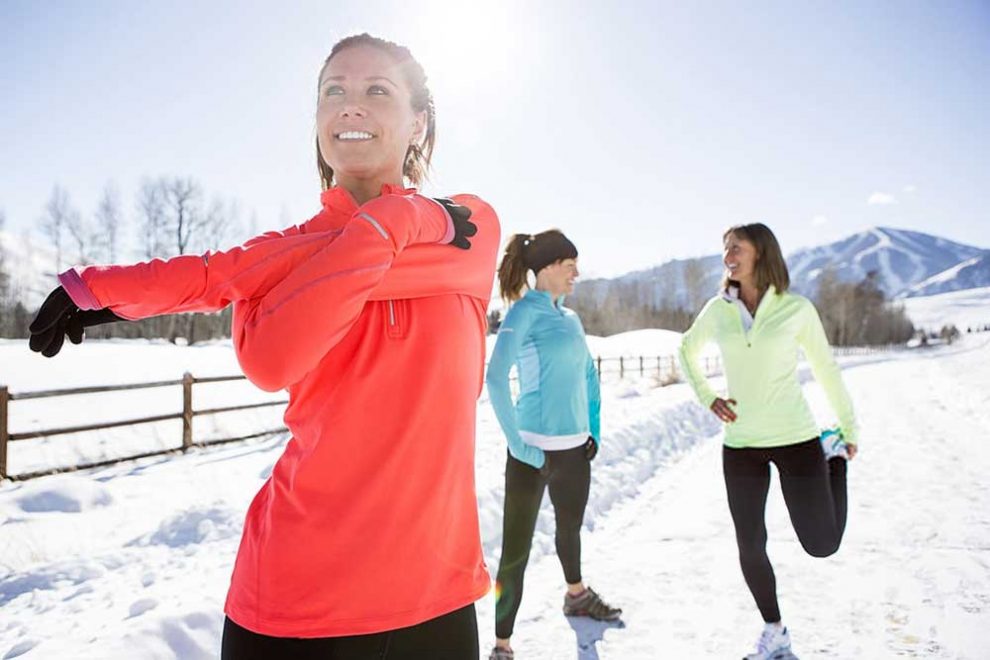Winter is quickly approaching which means not only dropping temperatures but more possible health and safety risks as well.
There’s a lot to think about prepare for, from driving dangers during winter to staying healthy when sickness seems to be all around you.
The following are a broad set of health and safety tips specifically for the winter months.
Driving in Winter
The risk of traffic accidents is a significant safety risk, and for some people, driving can become more dangerous and treacherous during winter.
A few tips for driving in winter include:
- Make sure you always have at least half a tank of fuel in your vehicle and keep cold-weather emergency items in your car including extra food and water, warm clothes, flashlights, and blankets.
- If the weather’s bad, only go out if you absolutely have to and give yourself plenty of time to drive slowly.
- Try not to stop if you can avoid it during winter, and especially don’t stop if you’re going up a hill.
- Give yourself at least five to six seconds of following distance.
Nutrition
Winter can be a time where you focus less on your nutrition and more on warm comfort foods that are often pretty unhealthy. Don’t let yourself fall into that routine because your nutrition impacts every other area of your health.
The following are some nutrition tips to follow this winter:
- Try to avoid overdoing it on the carbs. When it’s cold, you may crave more carbs because they can make your serotonin levels rise, and then that leads to a cycle where you want more and more. Instead of turning to carbs, try and make choices such as protein-packed meals to keep yourself energized all day.
- Take an omega-3 supplement or eat fatty fish. Omega-3s can lower symptoms of depression, which people are more likely to experience in the cold weather months, and they fight inflammation that can lead to issues such as joint pain.
- Add mushrooms to your recipes. Mushrooms are good for the immune system and have natural antibiotics in them.
- Eat plenty of colorful fruits and vegetables in the winter, so you get enough nutrients.
- Look for recipes that include inflammation-reducing spices such as turmeric and garlic.
Exercise
Exercise is an integral part of being healthy in the winter, but if it’s too cold or snowy to go outside, it can limit your options.
Luckily there are ways you can still exercise even in the dead of winter. One option is to use an app. There are loads of fitness apps available, regardless of your preferences, so you can find what works for you. Many fitness apps have programs specifically designed for doing at home and with limited space.
Each week you should try to create a set exercise plan for yourself so that you’re more likely to stick with it as well.
Around the House
During the winter you probably spend more time at home than you would otherwise. There are some steps you can take to keep your home environment safe too. These include:
- Be careful hanging and taking down holiday decorations. Unless you’re using decorations with only LED lights, the bulbs can get very hot and create a fire risk.
- If you burn candles or use a wood burning fireplace, make sure you go through and extinguish all fires before you leave or go to bed.
- Use caution with any kind of heating device, including heating pads, electric blankets, and space heaters. All come with a risk of a house fire if you don’t use them properly. For example, always make sure you unplug anything that produces heat before you go to bed.
- Most house fires occur in winter, so go through your home and make sure your smoke detectors are in good working order. You should also check your carbon monoxide detectors, and if you don’t have them, winter is a good time to install them.
- Salt your driveway and outside staircases frequently during the winter.
Finally, during the winter just as you take care of your physical health and safety, you should do the same for your mental wellness. If you notice that you’re starting to develop symptoms of depression, which can occur more often in winter, speak with a mental health professional before it becomes worse.
Make sure you get plenty of sleep but not so much that you feel even more tired when you wake up and be social as much as you can during the winter when it’s easy to feel lonely or isolated.
















